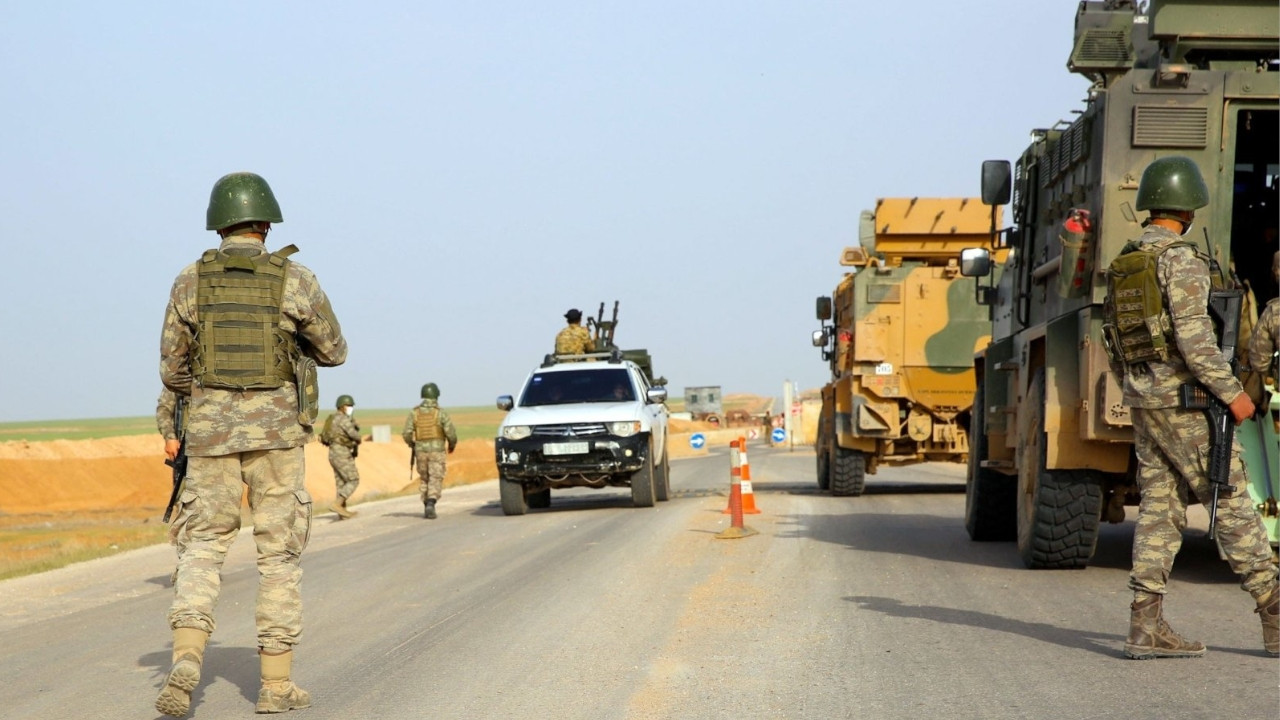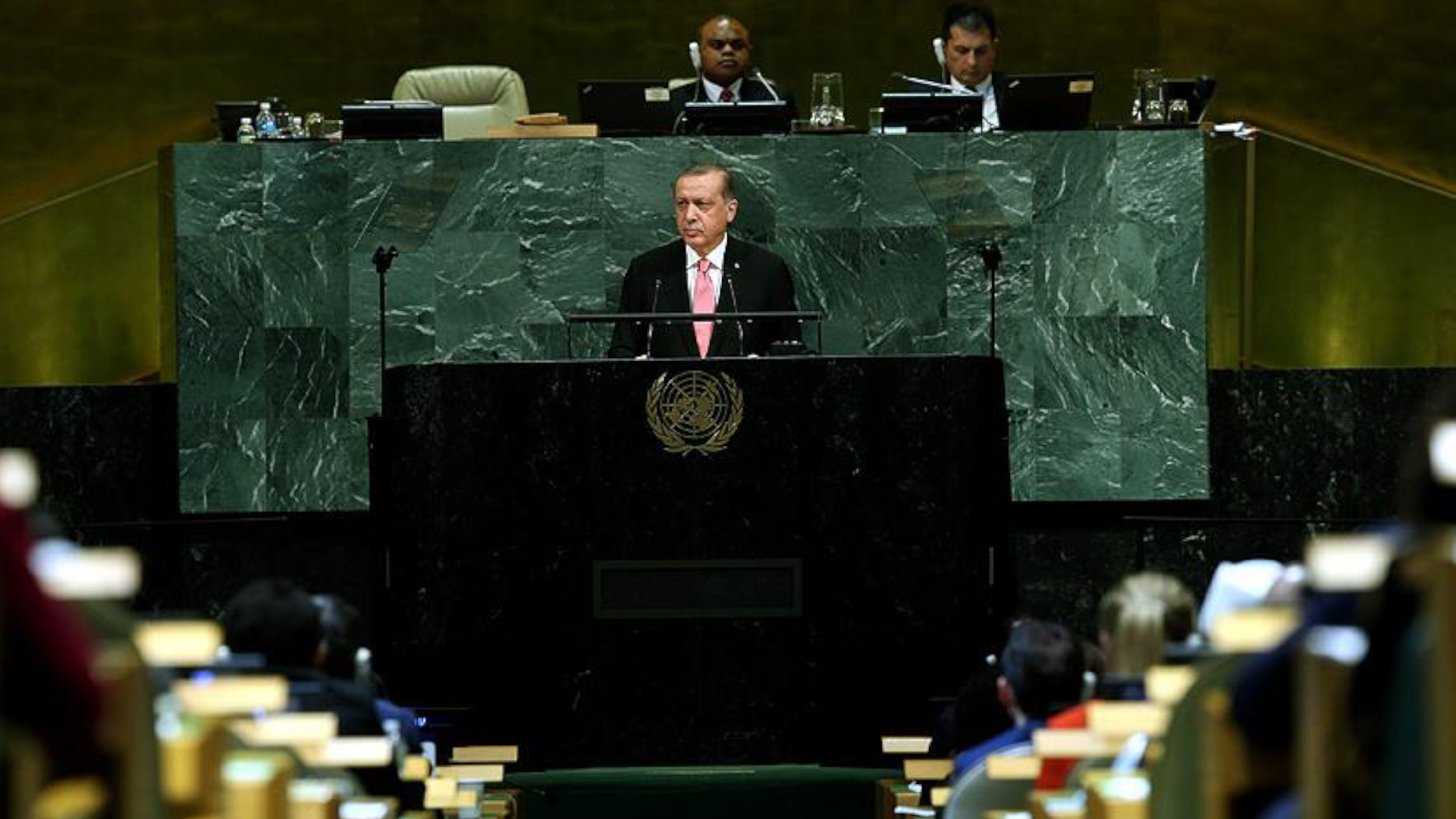Turkey’s foreign policy labyrinth
Turkey’s foreign policy is like a labyrinth these days with the symbolic departure of Chancellor Merkel as well as the AUKUS deal and France’s new defense treaty with Greece diminishing NATO’s relevance in transatlantic relations. Although neither Merkel nor NATO will disappear overnight, Turkey needs to reevaluate its strategy for getting out of this maze.
Turkey’s foreign policy is constantly rerouting due to roadblocks these days. It is like a labyrinth for Ankara as navigating through the dizzying puzzle becomes more and more intricate.
For now, let’s just have a look at the “relations with Europe” part of the maze:
September’s end marked the symbolic departure of Chancellor Angela Merkel from the political scene; A long-known, nevertheless tricky, development as it bodes for serious roadblocks on the path forward. The possibility of an extensive time of coalition negotiations is an “opening” for Turkey while Merkel will stay as the chancellor for a prolonged period. This overtime of Merkel will benefit Ankara as it provides an extra period to (finally) conclude the refugee deal. In that sense, Merkel’s “surprise visit” to Turkey on October 16 is an opportunity for Ankara.
Merkel’s visit to Turkey in October 2015 prior to repeat elections in November was regarded as aiding an electoral boost for the ruling Justice and Development Party (AKP) and in part reinstating them to power. Merkel’s subsequent visits to Turkey were all perceived to enhance the AKP and Erdoğan’s electoral credentials: Three visits in 2016 alone, one in 2017 prior to the referendum to switch to the presidential system, and one visit in 2020 after the double loss of Istanbul’s municipal elections to Republican People’s Party’s (CHP) Ekrem İmamoğlu.
Merkel was always the ace, coming in at opportune moments to give life to the government when there were dead ends in the labyrinth. But the ultimate expiration date of that magic card is approaching fast.
Meanwhile, in this labyrinth, two international developments on the military front present new roadblocks for Ankara: First, the AUKUS deal between Australia, Britain and the United States diminishes NATO’s relevance in transatlantic relations. The AUKUS deal focuses on an area seemingly far away from Turkey’s sphere of influence, namely the Asia Pacific, and in an operational sense it will not affect NATO. However, it concretely triggers the process of Europe and the U.S. going their separate ways. There could not have been a more forthright push from Europe towards the strategic autonomy that France was calling for than the AUKUS.
France has been calling for “strategic autonomy;” meaning Europe pursuing its own security, economic, and political interests through becoming a solid geopolitical entity. The concept was developed out of necessity-after Donald Trump’s election as an unpredictable actor turning its back to Europe. The “America First” approach seems to continue engraining itself into the foreign policy DNA of the United States even after Trump’s departure. The AUKUS deal bears the signature of “America First” when viewed from the European side of the Transatlantic.
Moreover, the AUKUS is ‘so Brexit’ as Britain carves deals on its own at the expense of the European allies.
French President Emmanuel Macron was blunt in calling the NATO “braindead.” Now, through the trend of concluding “dynamic and narrowed multilateral deals” suiting strategic autonomy, NATO is left less relevant as a static and extended alliance.
Secondly, France itself concluded a defense treaty with Greece, which sidelines and diminishes the gravity of NATO.
As Katerina Sokou wrote for the Atlantic Council:
“Decades from now, historians may agree with Greek Prime Minister Kyriakos Mitsotakis’s description of the strategic defense agreement signed last week between France and Greece as “the first step towards a European strategic autonomy.”
Greece’s Prime Minister Kyriakos Mitsotakis was also pointing out to the of the agreement as he told Macron, “History wants us together, so does geography”.
The fact that two NATO allies agreed on a defense deal to protect each other in case of an attack is an expression of distrust of the larger alliance. Had Turkey not been in the picture as the possible aggressor ‘third party,’ would France and Greece have been drawn to conclude a defense deal? It is the first “intra-NATO defense assistance commitment,” a private alliance within the alliance. And that’s a real game changer in the labyrinth Turkey is trying to navigate its way through.
NATO was another trump card for Turkey, as the alliance acted more and more as a framework to keep Ankara ‘anchored’ in the European geostrategic and defense sphere. In other words, NATO managed a balancing act in the military sphere akin to Merkel’s role in the political one as far as Europe was concerned.
Neither the “Merkel effect” and gravitational force of NATO will disappear overnight. But Ankara is running out of boosters, and the maze is getting more complicated with the Biden administration and Putin’s Kremlin giving cold shoulders, and the ‘Idlib Question’ putting pressure Turkey from the southern border. Additionally, security conundrums presented by a Taliban-ruled Afghanistan will be a challenge for Turkey-inter alias, the refugee issue and the extremist Islamist militancy getting rekindled.
Lastly, Ankara will have to find new ways to circumvent being boxed in the labyrinth, or get stuck between a rock and a hard place.


 US condemns cross border attack from Syria against TurkeyDiplomacy
US condemns cross border attack from Syria against TurkeyDiplomacy Erdoğan's struggle against odds: From New York to SochiWorld
Erdoğan's struggle against odds: From New York to SochiWorld